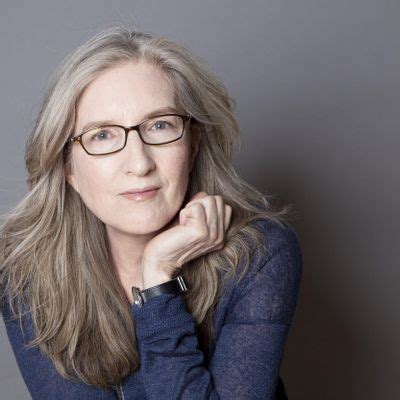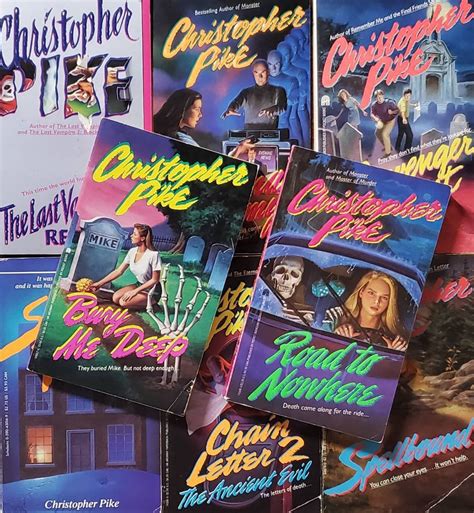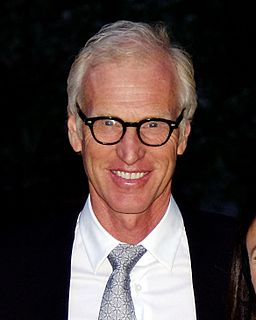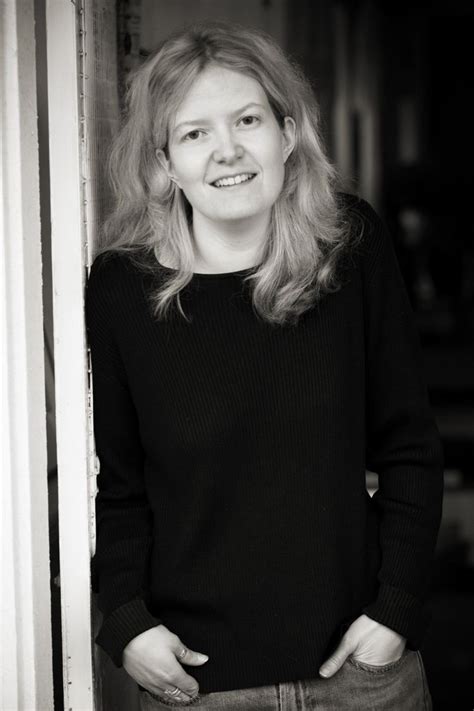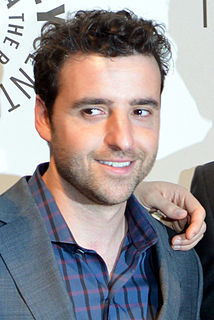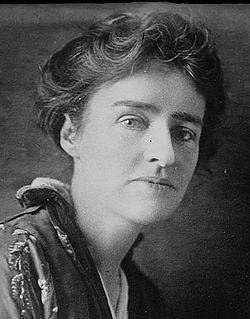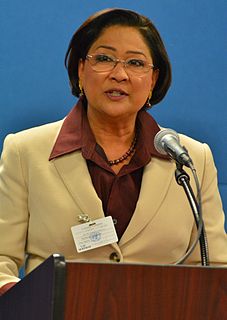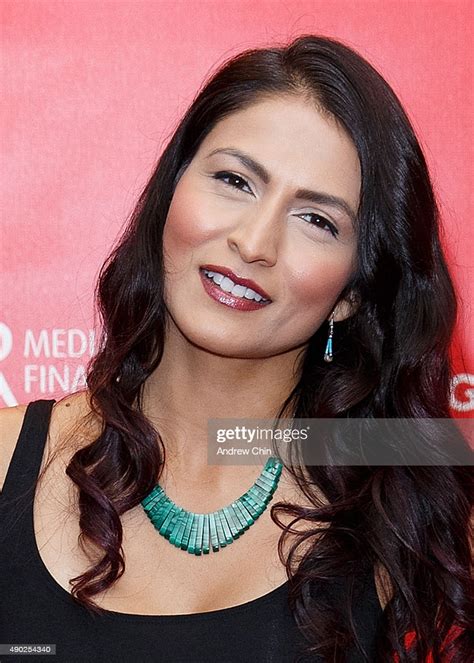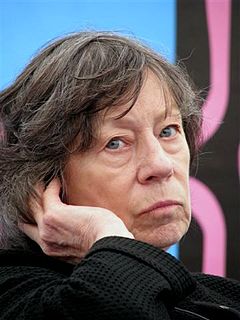Top 212 Julia Quotes & Sayings - Page 4
Explore popular Julia quotes.
Last updated on April 16, 2025.
There's songs you listen to at really heavy times, and you associate those songs with being depressed. 'English Rose' by The Jam, I can't listen to - it's just too heavy for me. 'Julia' by The Beatles, too. That popped up the other day, and I had to skip to the next song. They're both really awesome, moving songs, but I can't listen to them.
Some men you know are Southern before they ever say a word," Julia said as she and Emily watched Sawyer's progress, helpless, almost as if they couldn't look away. "They remind you of something good--picnics or carrying sparklers around at night. Southern men will hold doors open for you, they'll hold you after you yell at them, and they'll hold on to their pride no matter what. Be careful what they tell you, though. They have a way of making you believe anything, because they say it that way.
I'll never forget John Heard doing Shakespeare In The Park with Raul Julia and Richard Dreyfuss. It was 30 years ago, I guess. It was Othello, and John Heard played Cassio, and while everyone else was "Acting!" Heard came on talking normal, and everyone in the audience was leaning in to follow him. I wasn't doing that in Bus Stop. I think in that performance, I was putting it out a little too much.
Mother’s Day really was in its origin an antiwar day, an antiwar statement. Julia Ward Howe was sickened by what had happened during the Civil War, the loss of life, the carnage, and she created Mother’s Day as a call for women all over the world to come together and create ways of protesting war, of making a kind of alternate government that could finally do away with war as an acceptable way of solving conflict.
The state calls Paul Winthrop to the stand." ... Paul answered the opening questions briefly, weighing his words, his eyes on Julia's. "Would you tell the court the nature of your relationship with Miss Summers?" "I'm in love with Miss Summers." The faintest of smiles touched his lips. "Completely in love with Miss Summers.
. . . Jess believed, that she thought he was the best. It was not the kind of best that counted either at school or at home, but it was a genuine kind of best. He kept the knowledge of it buried inside himself like a pirate treasure. He was rich, very rich, but no one could know about it for now except his fellow outlaw, Julia Edmunds.
Here are a few of the actors who have brought my novels to TV life: Bill Pullman, Holly Hunter, Frances McDormand, Julian Sands, Gena Rowlands, Rob Lowe, Julia Ormond, Chelsea Hobbs, Tate Donovan, Anne Heche, Max Martini, Campbell Scott, Kimberly Paisley-Williams, Alexa Vega, and the late legends Richard Kiley and Kim Hunter.
Martin said, "It feels as though part of my self has detached and gone to Amsterdam, where it—she—is waiting for me. Do you know about phantom-limb syndrome?" Julia nodded. "There's pain where she ought to be. It's feeding the other pain, the thing that makes me wash and count and all that. So her absence is stopping me from going to find her. Do you see?
I wish people wouldn't just see me as the Asian girl who beats everyone up, or the Asian girl with no emotion. People see Julia Roberts or Sandra Bullock in a romantic comedy, but not me. You add raceto it, and it became, 'Well, she's too Asian', or, ‘She's too American’. I kind of got pushed out of both categories. It's a very strange place to be. You're not Asian enough and then you're not American enough, so it gets really frustrating.
We don't like to talk about that in America, but there are classes in America. And she [Julia Child] was of a class of women who were wealthy, privately educated, went to Smith, moved in that sort of circle. She was conscripted into the OSS, which is the early CIA, which was all filled with Yalies and Princeton and Harvard people and a few women who were typing mostly but also had something to do.
I sat there for several moments, trying to decide how best I should respond. None of the advice I'd gotten from the books or my friends really prepared me for how to handle discussions about alternative energy sources. One of the books - one I'd chosen not to finish - had a decidedly male-centric view that said women should always make men feel important on dates. I suspected that Kristin and Julia's advice right now would have been to laugh and toss my hair - and not let the discussion progress. But I just couldn't do that. "You're wrong," I said.
Wherever I go, I'll always see you. You'll always be with me. And there's no happy ending coming here, no way a story that started on a night that's burned into my heart will end the way I wish it could. You're really gone, no last words, and no matter how many letters I write to you, you're never going to reply. You're never going to say good-bye. So I will. Good-bye, Julia. Thank you for being my friend. Thank you for being you.
I don't know if you've ever seen some of the Sidney Lumet movies, like Dog Day Afternoon [1975] or Network [1976]. They're real events that happen in real time, and there are all of these different characters experiencing the same thing in different parts of the movie ... I am so bad at explaining my films. But it's in the world of finance and the world of media, and how they connect. It was a big undertaking. A big, mainstream movie, which stars Julia Roberts and George Clooney. But for me, it's really just a small story about character and people.
Yes, you can have art films about the triumph of the human spirit and all of that, but you'll have it done with a big-budget icon with a $20 million salary. You'll have Julia Roberts, you'll have Robert Redford, you'll have Russell Crowe doing those films, because if they're going to cost $90 million, they're going to make that movie for a public that's very large and mainstream. They're not going to make it for three or four million black people.
People were always saying to Margaret, 'Well, Julia sings and Betsy writes. Now what is little Margaret going to do?' Margaret would smile politely, for she was very polite, but privately she stormed to Betsy with flashing eyes, 'I'm not going to do anything. I want to just live. Can't people just live?
I would have been a lot more nervous if I would had known that Matthew McConaughey was [on 30th Annual Television Critics Association Awards] and Julia Louis-Dreyfus was there and all that, and I was like, "Wait a minute and Bryan Cranston's here..." I think I would have got more nervous. But I think thinking it was just like, "Oh yeah critics, we're good." It was great.
I lied to Julia, I didn't know what else to do because you - you make me feel..." I had to stop. Not because I didn't have words. I did. But I was afraid to say them. He looked at me, and I knew then I could love him. That if I let myself I would. "You make me feel too," he said, and held out one hand.
[10 Things I Hate About You] keeps popping up, and it's become a go-to film specifically for adolescent girls who are trying to find their voice, which is a really important thing, and the characters in the film, the two sisters played by Julia Stiles and Larisa Oleynik, they became archetypes for young teenage girls to look up to and emulate.
We're not gods, Julia. We're helpers. That's all. People have called us terrible things in the past. But that was only because they didn't understand us. That understanding is for the future, a time not long from now. You may live to see it. Then perhaps you can work openly, but for now, keep your gifts to yourself. Never flaunt your abilities. Never think you hold the power of life and death. Only God has that power. When it's a person's time, nothing can save them.
I have an evening dress, pink mull over silk (I'm perfectly beautiful in that), and a blue church dress, and a dinner dress of red veiling with Oriental trimming (makes me look like a Gipsy), and another of rose-coloured challis, and a grey street suit, and an every-day dress for classes. That wouldn't be an awfully big wardrobe for Julia Rutledge Pendleton, perhaps, but for Jerusha Abbott - Oh, my!
It's no accident that Julia Child appeared on public television - or educational television, as it used to be called. On a commercial network, a program that actually inspired viewers to get off the couch and spend an hour cooking a meal would be a commercial disaster, for it would mean they were turning off the television to do something else.
They're a handful, but Emily deals with that all the time and, as an actor, I deal with that all the time, so you just ignore it. When Julia [Jones] first came on set, she was like, "How do you deal with it?," and I told her, "You just tune it out after awhile." They were competing with each other, doing push-ups and just being ridiculous, so you just have to zone out.
They are, in a sense, two sides of the same coin: women are, on the one hand, subjects of an extremely real and abject (as Julia Kristeva put it) body and denigrated sexuality; on the other, the proliferation of images, and their digitalisation produces more and more abstract and air-brushed representations of impossible female bodies. Both indicate, certainly, a "lack of progress." But, one hopes, discussions and resistance are emerging in response.







